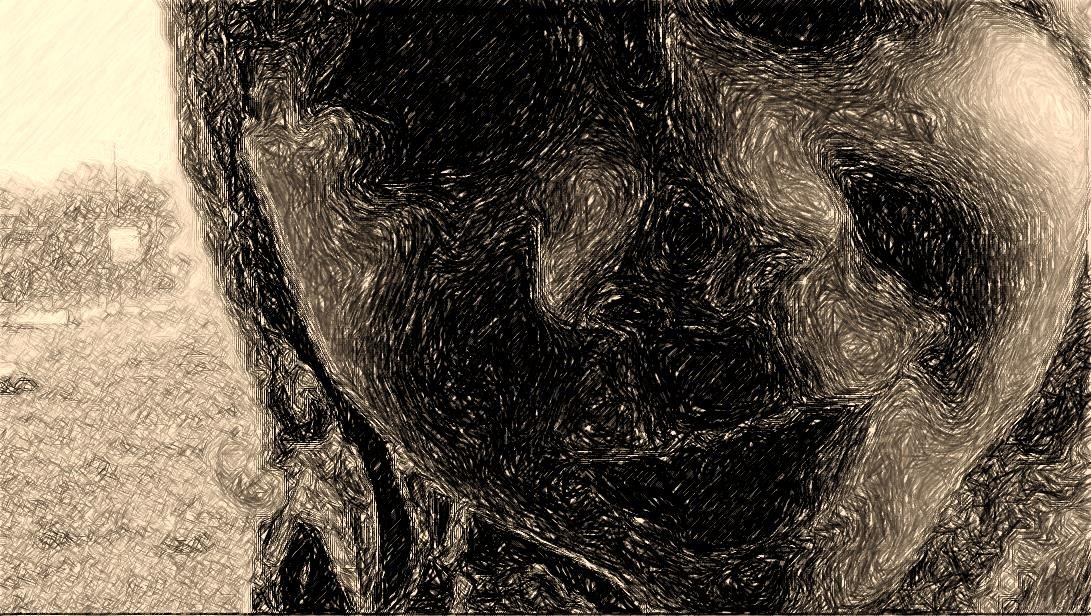Affective sociomaterialisation: an inquiry into early childhood subjectivities within outdoor early childhood provision in Scotland, UK
In a nutshell, my thesis examines how children’s identities are formed and can be formed otherwise through different ways of knowing about how our human relation to material environments.
My doctoral thesis is available to download from the British Library here (or on ResearchGate). It was completed 2018-2022 at the University of the West of Scotland.
The aims of this thesis:
1. To advance a sociomaterial metaphysics toward understanding children’s identity in-formation
2. To examine the potential for outdoor early childhood environments to facilitate thinking otherwise beyond determinising identity formations.
3. To evaluate how a sociomaterial metaphysics toward understanding children’s identity formation can assist future learning and teaching.
Abstract below:
“This doctoral thesis examines the formation of children’s subjectivities, related to the metaphysical conditions of being and becoming a subject, within fully outdoor early childhood provision in Scotland. The role of outdoor play provision has been made central in recent years by the Scottish Government as part of the broader expansion of Early Learning and Childcare (Scottish Government, 2017a; Scottish Government, 2017b; Education Scotland, 2019c; Scottish Government, 2020a). This enhanced focus raises questions around how children form their subjectivities in such spaces and how this may differ from what is known about subjectivity within conventional indoor provision.
Further, while the existing knowledge base on subjectivity in childhood is derived mainly from the intellectual progress made through the fields of social constructionism (Foucault, 1978), performativity theory (Butler, 2004; 2006; 2011) and developmental psychology (Piaget, 1948; 1957), concerns have been raised regarding the extent to which such frameworks may give primacy to the human, and the logics of humanism, over and above the non-human world (Barad, 2007; Dolphijn and Tuin, 2012; Braidotti, 2013). Such concerns warrant special attention in relation to entirely outdoor environments, where these approaches may underplay the significance of ontological and ontogenetic matters that contribute toward the formation of subjectivity.
This study applies a sociomaterial metaphysical framework to propose an alternative way of understanding how subjectivities come to form in early childhood environments, bringing together Spinozist (2002) monism and insights from process philosophy (Massumi, 2002) in relation to Deleuze and Guattari’s (1987) concepts of the assemblage and affect. Methodologically, a ethnographic approach, inspired partly from the postqualitative field of scholarship, is employed to gather data on children’s subjectivities at Wood Fire, a fully outdoor early childhood setting.
The findings of this study reveal the novel materiality and relationality of fully outdoor early childhood provision through which subjectivities are in-formed, and also point toward the ways that social and cultural determinacies continue to affectively orientate children’s desires in the absence of clearly demarcated material spaces. Thus, these findings a demonstrate more expanded understanding of how we, humans, are produced as individuals in specific encounters through processes of ‘affective sociomaterialisation’. Through the presentation of data in textual, visual and cinematic modes, practitioners are encouraged to re-evaluate the role of outdoor provision through a sociomaterial metaphysics that challenges conventional knowledges about how children’s subjectivities are formed. Practically, this carries implications for how the materiality of outdoor environments is understood to contribute to the child’s sense of self on more expansive terms.”
To cite: Tembo, S. (2022) Affective Sociomaterialisation: An Inquiry into Early Childhood Subjectivities within Outdoor Early Childhood Provision in Scotland, UK., University of the West of Scotland [Online] Available at: https://ethos.bl.uk/OrderDetails.do?uin=uk.bl.ethos.867951 (Accessed: 02 Jan 2023).
Please get in touch directly if you’re not able to access the thesis via the link.
What is affective sociomaterialisation?
This is an original term used within this thesis. It is intended to describe the process through which subjectivity is produced on the basis of the sociomaterial framework that I advance. Affective sociomaterialisation denotes a more expansive way of understanding subjectivity, compared to conventional theoretical frameworks, insofar as it incorporates ontogenetic as well as epistemological knowledges.


